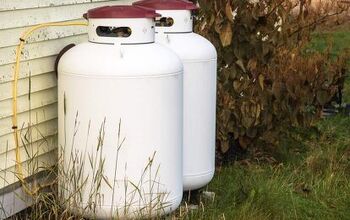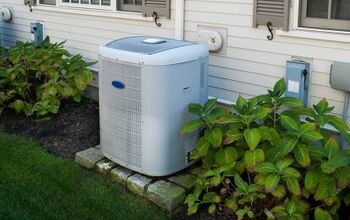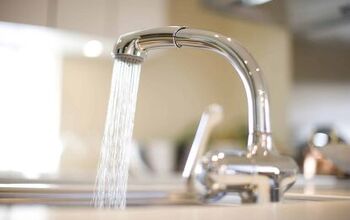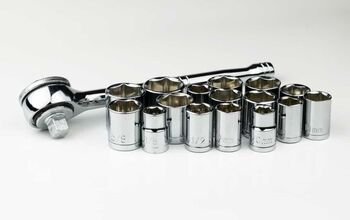Can Lawn Mowers Get Wet?

A lawn mower helps boost your curb appeal and helps you maintain your backyard. If you have a large model that doesn’t fit into storage, you might be concerned about leaving it outside. Electric lawn mowers average $500 per machine, so you want to protect your investment as much as possible.
During rainy seasons, lawn mowers left uncovered outside may be vulnerable to critical damage. This potential damage is worst for lawn mowers that use battery, electrical power, or gas.
Yes, lawn mowers can get wet. If you’re worried about damage, first assess whether or not water entered the engine. You’ll need to take more care with electric or gas mowers. If you have a push reel mower, water damage is less of a risk. These lawn mower types don’t contain any sensitive parts like batteries, electrical cords, or plugs.
To keep this landscaping machine in working condition, you’ll need to understand how to protect it from wet conditions. It’s helpful to understand what cleaning and storage methods are best for your lawn mower, depending on the type.
Can Lawn Mowers Be Left in the Rain?
In short, lawn mowers can be left in the rain. If the rain is light and the lawn mower is only exposed for a short period, it will be okay. Lawn mowers can handle a little bit of precipitation without jeopardizing their critical components inside.
Can I Leave My Lawn Mower Outside?
You can leave your lawn mower outside with the proper precautions. If you’re using your lawn mower every few weeks, use a tarp cover or one from your lawn mower manufacturer.
If you’re storing your mower outside for longer (e.g. for the winter), then you’ll need to take extra steps. For electric-powered mowers, you’ll need to remove the spark plugs. For gas-powered lawn mowers, you’ll need to empty out the fuel container.
Lastly, for battery-powered lawn mowers, take out the batteries. Store the batteries properly, preferably indoors somewhere dry with a stable temperature.
Can You Wash a Lawn Mower With Water?
The best cleaning method for your lawn mower is the one your manufacturer specified. With that in mind, you can wash a lawn mower with water.
Keep the water off of the engine and other delicate parts. Avoid power washers, which can force water into nooks and crannies that are not waterproof.
One important step that doesn’t require water is making sure you remove all grass clippings from the underside and blades. You might also scrape off other debris like soil and leaves.
Can Riding Lawn Mowers Get Wet?
A riding lawn mower’s outer components can handle light rain, like any other lawn mower type. Since it has wheels, the parts under the deck are less likely to get soaked from floods.
A riding lawn mower can get wet if its parts are stored properly and it is cleaned prior to storage. If your lawn mower has a carburetor, spark plug, fuel container, or filters, try to avoid getting it wet.
Aside from light rain, morning dew, or a gentle hose off, riding lawn mowers should not get wet. Additionally, mowing grass in the rain and other precarious weather can result in preventable accidents.
It’s always best to mow the lawn in dry weather when slippery surfaces are not a risk.
What to Do if Your Lawn Mower Gets Wet
Before continuing with the suggestions below, try starting your lawn mower’s engine. At first, it may not budge, but after water gets dislodged, your machine may still function. Let it run for several minutes.
If your lawn mower is unresponsive, try these ideas.
Disassemble the Parts
- Fuel Tank or Battery: Your machine’s power source may be damaged. Drain any oil or gas that may have been compromised during flooding incidents. Install a new fuel filter or fuel tank if necessary.
- Spark Plug: The spark plug may get damaged easily. When wet, it needs to be removed and dried. You may also need to apply lubrication to the spark plug in case the previous coat got washed off.
- Filter: The air filter may have been dirty prior to it getting wet. A dirty, wet air filter can cause clogs and prevent the lawn mower from starting.
- Carburetor: If not dried properly, your carburetor can suffer rusting or permanent damage. Stray water in the fuel tank can make its way into the carburetor, causing ignition problems.
Let the Parts Dry Out
All parts that came into contact with water need to be dried out.
Replace permanently damaged parts
Unfortunately, some parts of your lawn mower may simply stop working after their run-in with water. Even uncritical parts like metal coils can impair your machine altogether. If the damage is is too far gone, a new lawn mower may be the best solution.
How do I Know if My Lawn Mower is Flooded?
A flooded engine can be caused by gas or water. When your lawn mower’s engine is flooded, it won’t start no matter how many times you try.
Some signs of gas flooding include a gasoline smell and false starts.
How Long to Wait if My Lawn Mower Is Flooded
Most knowledgeable sources advise not to wait no longer than 20 minutes to drain your lawn mower’s fuel tank. Sometimes, your engine may be flooded because the gas has gone bad from sitting out for too long.
For riding mowers, leave the machine on idle for about 15 minutes.
Other Causes of a Flooded Lawn Mower
- Spark Plug: If your spark plug is old, dirty, or corroded, it may be the cause of your flooded engine. It may be allowing fuel to fill your carburetor without engaging the engine at all.
- Old Fuel Going Through: If your machine has been sitting for a season or longer, fuel may have made its way to the carburetor.
- Dirty Fuel: If your air filter is not working, dirty fuel can block the fuel flow. This prevents the fuel from reaching the carburetor and causes your engine to stall.
- Starting the Engine Incorrectly: If you don’t pull the starter hard enough or fast enough, you may pull fuel inside without creating enough friction.
- Defective Float Valve: This is a crucial part of the lawn mower that prevents the fuel from reaching the carburetor. When it gets stuck or is worn down, it can cause fuel to flood your engine.
Is It Ok to Hose Off a Lawn Mower?
It’s fine to hose off a lawn mower, given that you do not flood the internal components. This is why most homeowners tend to stay away from power washers when hosing off their lawn mower.
Avoid getting water on the carburetor, electrical parts, and air filter. Often, scraping away debris and grass under the deck is just as important as hosing down your lawn mower.
Related Questions
Can electric lawn mowers get wet?
While electric lawn mowers can handle some rain, they are not designed to be waterproof. The deck keeps electrical components safe, but electric lawn mowers should not be left out in the rain.Even mowing wet grass can introduce moisture to an electric lawn mower’s critical components. The batteries, engine, and wiring can break easily. Other parts may corrode, leaving you with a faulty lawn mower.
What happens if my push mower gets rained on and soaked?
A push mower will typically be okay after it gets rained on — soaked or not. Letting the engine run for several minutes can help any remaining moisture evaporate. Given that the engine is not flooded with water, your lawn mower will still be functional.If you have a push reel mower, you won’t have to worry much. Most models are rust-resistant. As long as you let your lawn mower dry out completely before storing it properly, it will be fine.

We are a team of passionate homeowners, home improvement pros, and DIY enthusiasts who enjoy sharing home improvement, housekeeping, decorating, and more with other homeowners! Whether you're looking for a step-by-step guide on fixing an appliance or the cost of installing a fence, we've here to help.
More by Upgraded Home Team



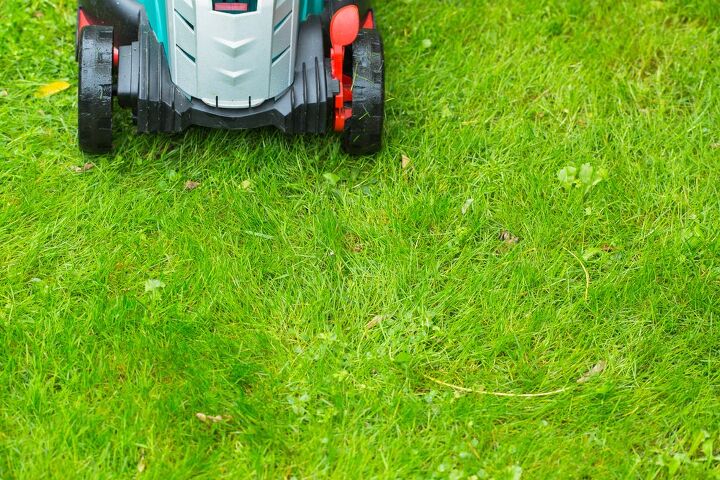














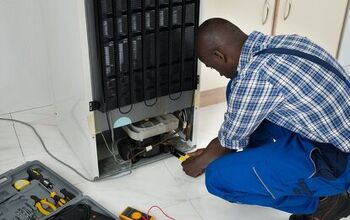
![10 Most Dangerous Neighborhoods in Baltimore [Updated]](https://cdn-fastly.upgradedhome.com/media/2023/07/31/9075655/10-most-dangerous-neighborhoods-in-baltimore-updated.jpg?size=350x220)
